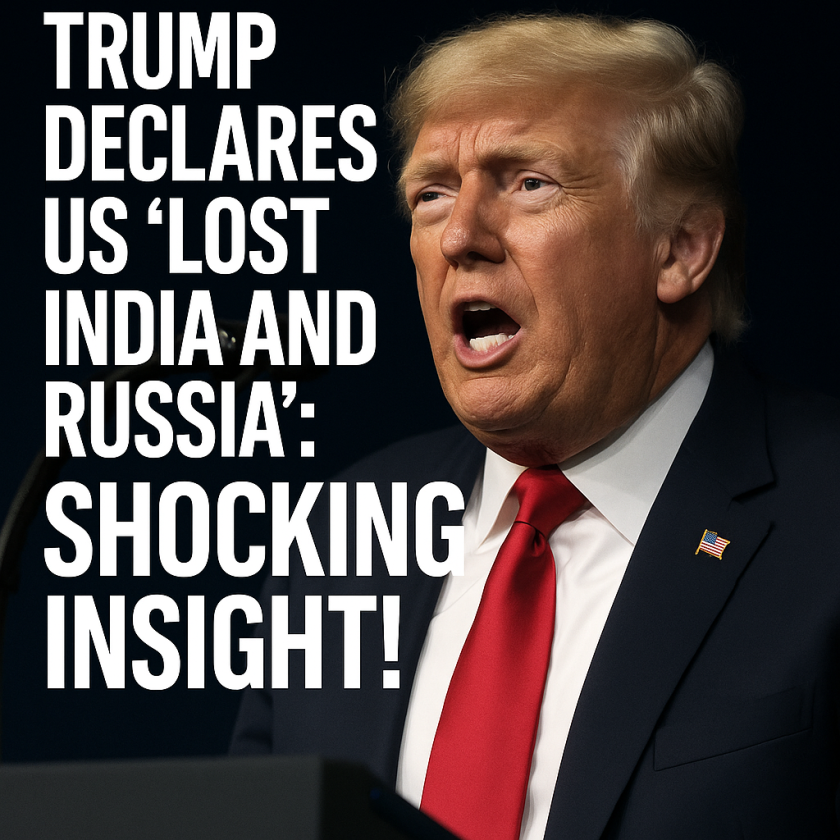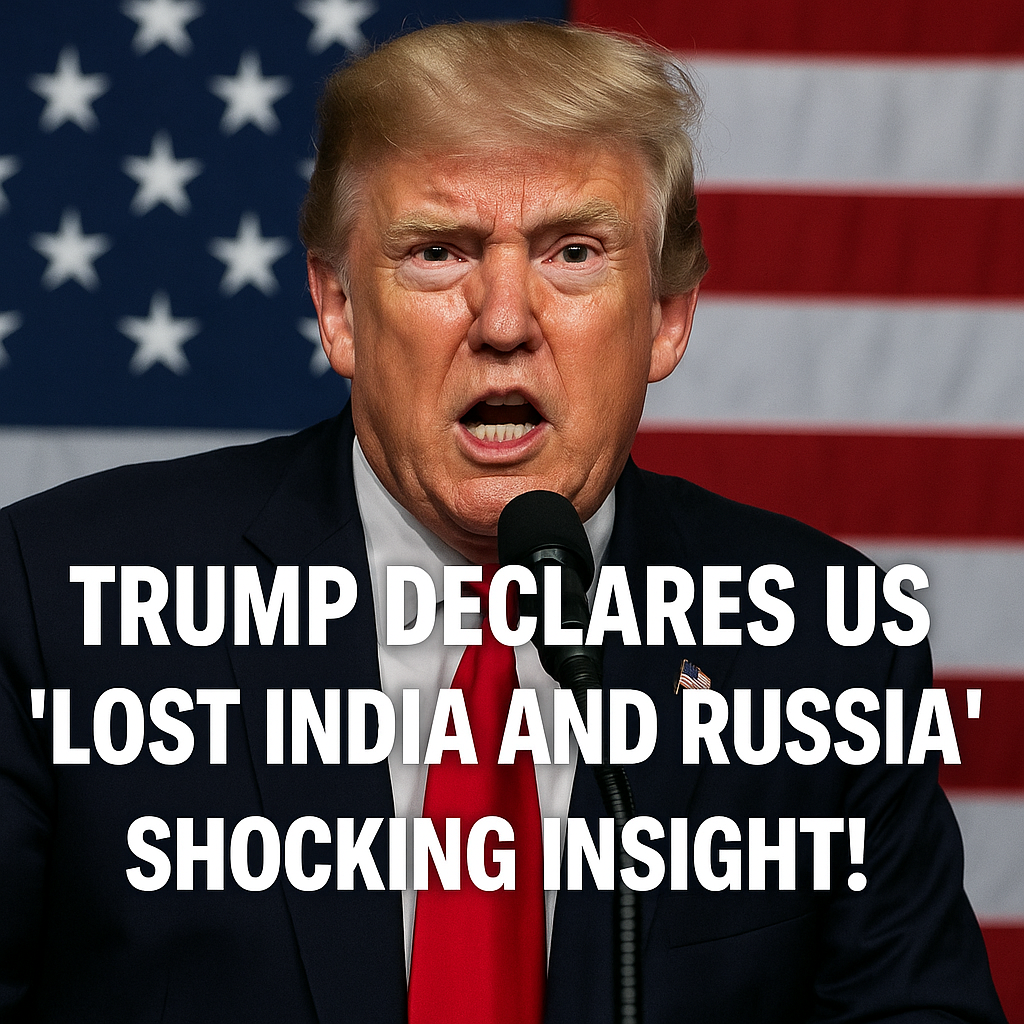Trump Declares US ‘Lost India and Russia’: Shocking Insight!
Trump Declares US ‘Lost India and Russia’: A Closer Look at His Controversial Insight
Trump’s claim that the United States has “lost” India and Russia has sparked a wide array of responses, highlighting the contentious dynamics of international relations in a rapidly changing global landscape. This assertion raises questions about the implications for U.S. foreign policy, national security, and diplomatic strategy moving forward.
Examining Trump’s Statements on International Relationships

In a recent interview, former President Donald Trump suggested that the U.S. has steadily lost its influence over key global players like India and Russia. This perspective reflects Trump’s ongoing critique of the current administration’s diplomatic efforts, which he argues have weakened America’s standing in the world. According to him, both nations are gravitating toward alliances with adversaries of the U.S., thereby diminishing American leverage in global affairs.
This perspective is not merely a reflection of Trump’s personal convictions but is also indicative of a broader narrative at play in American politics. Political commentators have noted that Trump’s statements resonate with a segment of the population that feels disillusioned by the complexities of international relations and the perceived decline of American power. Trump’s followers often cite his previous administration’s successful diplomatic maneuvers, such as the Abraham Accords, which they argue exemplified better foreign policy strategies.
Diverse Perspectives on U.S. Diplomacy
While Trump’s remarks have garnered significant attention, they have also elicited a variety of responses from political analysts and foreign policy experts. Some agree with Trump’s premise, suggesting that the shifting allegiances of nations like India and Russia signal a failure of U.S. diplomacy. Trump’s supporters point to India’s recent partnerships with Russia for defense and energy as evidence of this trend, framing it as an abandonment of traditional alliances.
Conversely, others argue that framing the situation as a “loss” is overly simplistic and ignores the complexities of international relations. In their view, countries like India and Russia engage in a pragmatic dance of diplomacy that prioritizes national interests over allegiance to the U.S. This perspective highlights the fact that both India and Russia are using their relationships with the U.S. as part of a broader strategy to navigate a multipolar world.
For instance, India’s increasing interest in diversifying its military partnerships and energy sources elevates its status on the global stage, rather than signaling a rejection of U.S. ties. Analysts from outlets like Al Jazeera emphasize that India maintains a careful balancing act, cultivating relationships with both the U.S. and Russia to secure its geopolitical interests.
The Implications for U.S. Foreign Policy
The debate regarding the United States’ standing in relation to India and Russia brings forth crucial questions about the future of U.S. foreign policy. If the U.S. loses significant influence in these regions, what might that mean for its global position? The implications could be profound, potentially affecting everything from military alliances to economic ties and diplomatic initiatives.
1. Strategic Realignments: As nations recalibrate their partnerships based on evolving geopolitical landscapes, the U.S. may need to reassess its approach to diplomacy. For instance, strengthening ties with countries in the Indo-Pacific could become a more pressing strategy to counterbalance growing influences from Russia and China.
2. Global Competition: The rivalry between major powers is increasingly defined by strategic competition. With India and Russia exploring deeper partnerships outside U.S. influence, American policymakers may need to adopt more innovative strategies to engage these countries, possibly through cooperative agreements that align more closely with their national interests.
3. The Changing Nature of Alliances: The traditional notion of alliances may be undergoing a transformation. Countries are seeking to cultivate relations based on diverse interests, leading to a fluid landscape where old alliances are constantly reevaluated.
A Call for Nuanced Understanding
As the conversation surrounding Trump’s statements continues to unfold, it is crucial to approach the subject with nuance. While there is certainly merit in examining the complexities of U.S. relationships with countries like India and Russia, oversimplified narratives can obfuscate the real factors at play. Policymakers and analysts alike must understand that navigating international relations today requires a delicate balance of strategy, respect for the agency of other nations, and recognition of the changing geopolitical order.
In conclusion, Trump’s declaration regarding the U.S.’s perceived losses in India and Russia has invigorated a critical discourse on American foreign policy. Whether one agrees or disagrees with his perspective, it serves as a valuable entry point to explore the complexities of international relations in an ever-evolving global landscape. As nations like India and Russia continue to chart their own courses, the U.S. may need to adapt its strategies to remain relevant in this shifting paradigm.






































